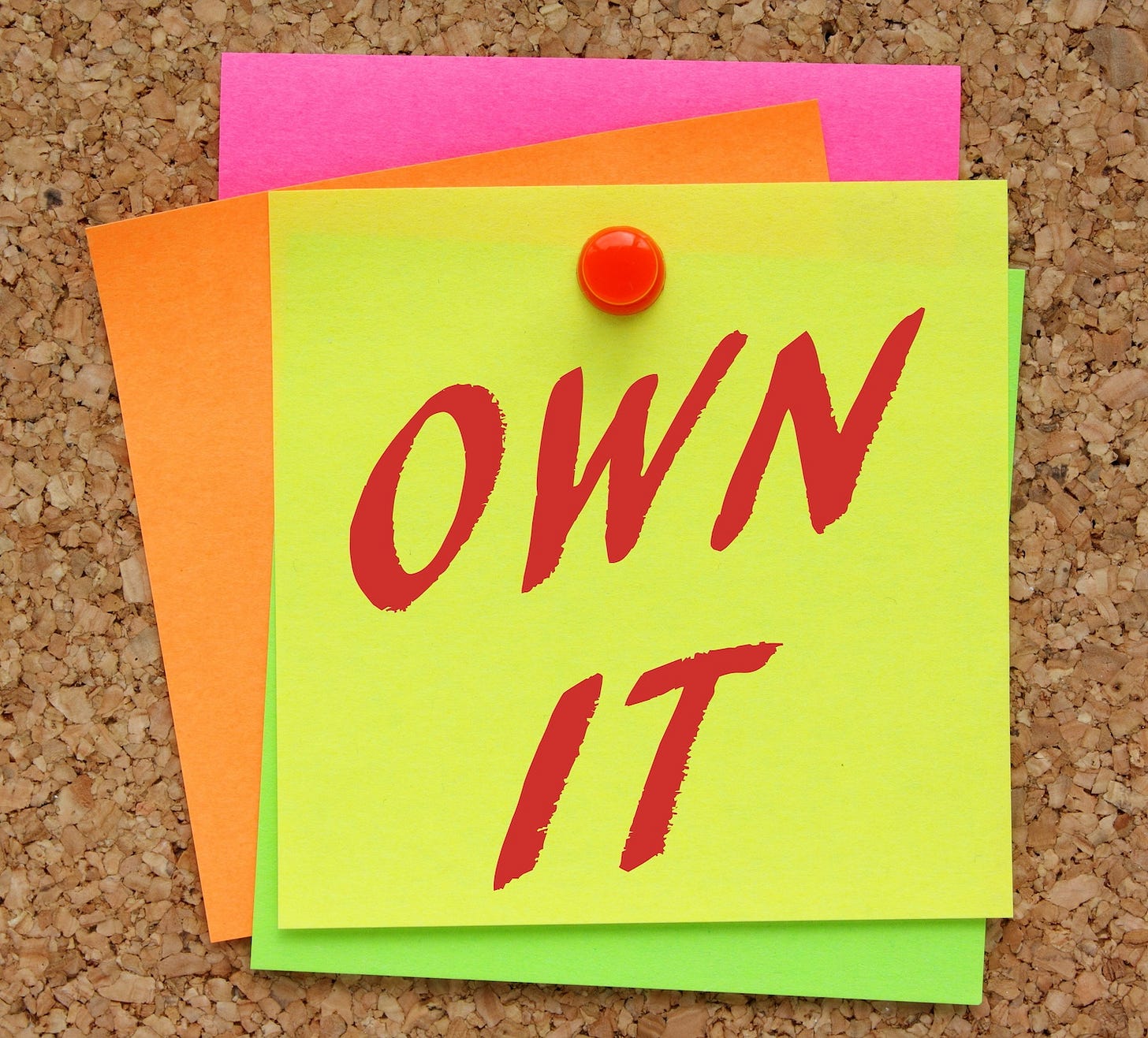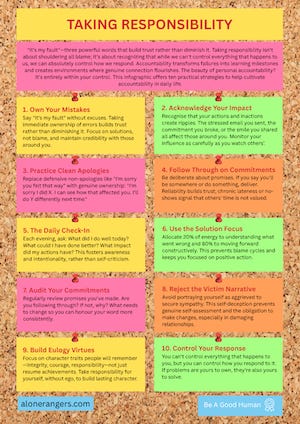Taking Responsibility (with Infographic)
Taking responsibility creates the foundation for genuine intimacy. Only when we own our own stuff can we show up authentically for others.
This is a follow-up from my article ‘Taking Responsibility: Creating Positive Change Through Personal Accountability’, the eighth in a series of articles about ten qualities of a good human - dimensions of character to cultivate over a lifetime.
Here are ten practical strategies for developing genuine accountability without falling into blame or martyrdom.
“It’s my fault.” Three words. Simultaneously, the hardest and most powerful phrase any of us can say.
I learned this truth the hard way during my years managing a Sydney theatre. After an entire year’s worth of ticket stock ended up in the rubbish bin due to my oversight, I faced a choice: blame the cleaning staff who had followed protocol, or own up to my mistake. As a leader, there was only one real option.
What surprised me wasn’t just that admitting fault didn’t destroy my credibility, it actually strengthened it. By owning the error immediately and focusing on solutions, I maintained the trust of both my team and my supervisor. This lesson fundamentally changed my understanding of accountability.
For too long, our culture has confused taking responsibility with taking blame. We’ve created elaborate systems for deflecting accountability, learned from childhood playground tactics of “it wasn’t me!” Many of us carry these defensive patterns into adulthood, where they become toxic to our relationships and personal growth.
Research from David Brooks’ “The Road to Character“ draws a crucial distinction between “resume virtues” (external achievements) and “eulogy virtues” (character traits people remember). Taking responsibility falls squarely within the category of eulogy virtues. It’s not about boosting your standing - it’s about building genuine character.
The most damaging misconception? Taking responsibility means shouldering everyone’s problems or accepting blame for things beyond our control. True accountability is more nuanced. It’s about recognising that while we can’t control everything that happens to us, we absolutely can control how we respond.
Real accountability has several key components: acknowledging your impact on others, learning from mistakes without defensiveness, following through on commitments, and focusing on solutions rather than excuses. It’s the difference between a victim narrative (which feels righteous but keeps us stuck) and genuine ownership (which empowers us to change).
The beauty of authentic accountability? It creates space for connection. When you’re not constantly defending yourself or managing your image, you can actually be present, listen deeply, and build the kind of trust that makes relationships meaningful.
No matter your current relationship with responsibility, it’s a skill you can develop through specific practices. The following ten strategies represent practical ways to build authentic accountability from the inside out—no dramatic personality transformation required.
Download this quick reference guide :)




